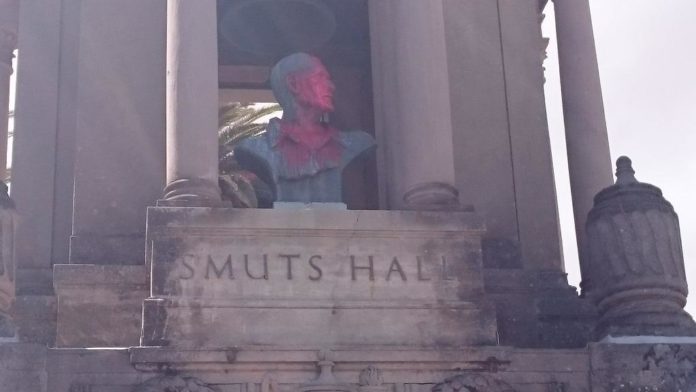The University of Cape Town (UCT) has approved the renaming of the Jan Smuts residence hall with immediate effect.
Read more: Mixed Reviews From Students As UCT Names Building After Chris Hani
This is not UCT’s first name change. In 2015, the Graduate School of Humanities Building was renamed the Neville Alexander Building. In 2018, the Arts Block building was renamed the AC Jordan Building.
Babalwa Ngonyama, chair of the UCT Council, said on the recommendation of the Naming of Buildings Committee, the Smuts Hall name change will take immediate effect. The name Upper Campus Residence will be used until a new name has been formalised.
“As much as this is part of the ongoing transformation efforts at UCT, any name change process can be emotive for both those calling for the name to be replaced and those wishing for it to be retained,” Ngonyama said in a statement. “However, if anything, the Smuts Hall renaming should provide a moment through which we view the name changing processes from completely different lenses.”
BACKGROUND:
In March 2015, the student-led #RhodesMustFall protest movement began at the University of Cape Town calling for the removal of the statue of Cecil Rhodes. The protest sparked a nationwide movement calling for free, decolonised education. In April 2015, the UCT council voted for the statue to be removed.
In 2016 Witwatersrand University (Wits) announced the renaming of Senate House to Solomon Mahlangu House. Wits officially renamed the Central Block to the Robert Sobukwe Block in 2017. In 2018 Stellenbosch University renamed the HB Thom theatre to the Adam Small Theatre Complex.
Read more: Rhodes Must Fall: the university must be decolonised
The #RhodesMustFall movement continued after the statue removal to focus on free, decolonising education across South Africa. The movement called for campuses to be more welcoming to Black students.
At the time, student Kealeboga Ramaru, said patriarchy, white supremacy and all systematic oppression must be destroyed. The #RhodesMustFall movement kicked off discussions across South African universities about transformation and how to move ahead with decolonising academic spaces. The movement was student-led and apolitical drawing on black consciousness, Pan-Africanism, queer politics, and black feminism.
Read more: Rhodes Must Fall: The movement after the statue
So what was Smuts?
Smuts was a former Prime Minister of the Union of South Africa, and a renowned racist who believed Black South Africans should not have any political power. The UCT men’s residence was built in 1928 and named Jan Smuts hall in 1950 after Smut’s death that year. Up until 2018 UCT celebrated the 90th anniversary of the residence.
Speaking to the Daily Vox, Alex Hotz, a fallist from the 2016 movement, reflected on the name change approval.
“I am not indifferent but in 2016 many of us were expelled and suspended. We watched the Smuts plaque burn. [It was at] that moment UCT should have woken up to the fact that continuing to memorialise smuts in this whitewashed way was not right. This renaming is so late. I don’t understand why it has taken UCT so long to do this. There has to be proper recognition of anyone’s name that appears on a building at UCT. People like Neville Alexander and AC Jordan were black academics who never got the proper respect and recognition at the university. Putting their names on buildings feels so lazy. We should give people flowers when they are alive,” Hotz said.
She said there were so many suspensions and expulsions during the movements. Instead of setting things right with students whose lives were destroyed, they opted for a public relations exercise masked under name changes.
“Name changes are just name changes. It doesn’t really mean anything in terms of the university really acknowleging its history that enabled colonialism and apartheid. So changing [the] Smuts name means nothing if the university is not working actively to address the decolonisation struggle,” said Hotz.









